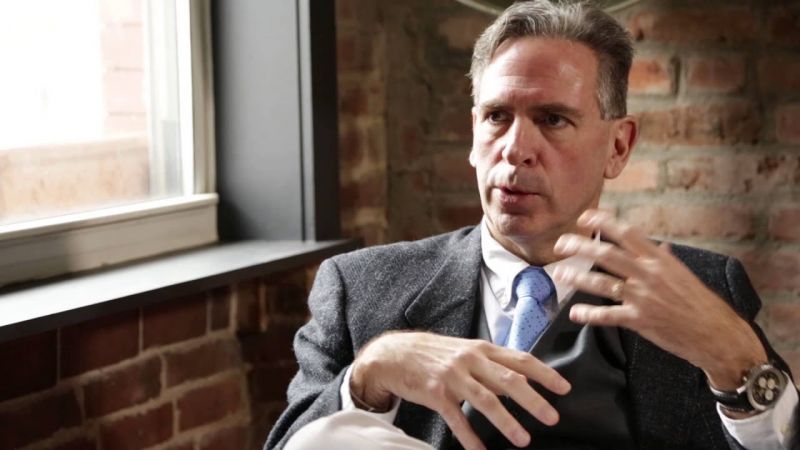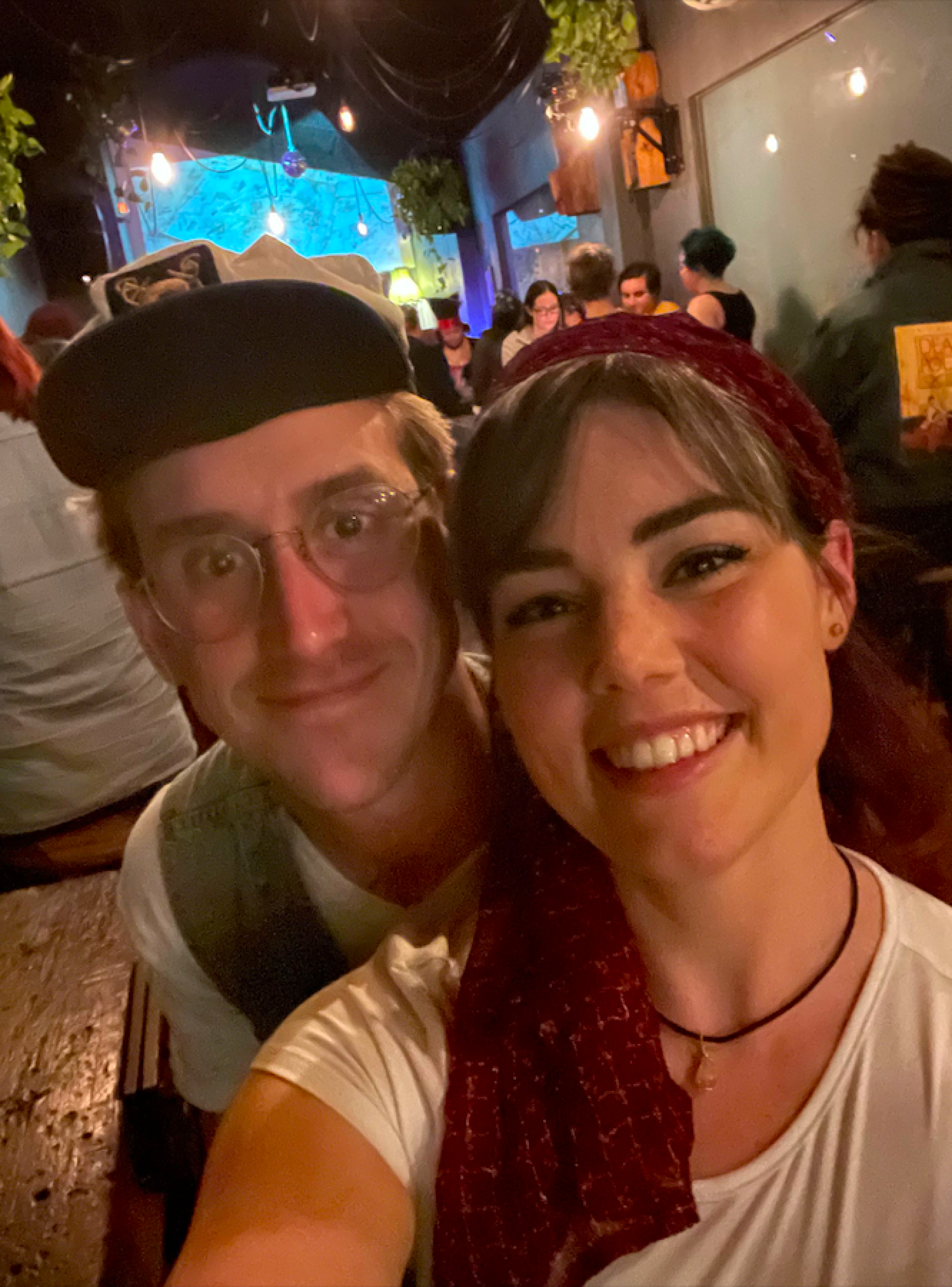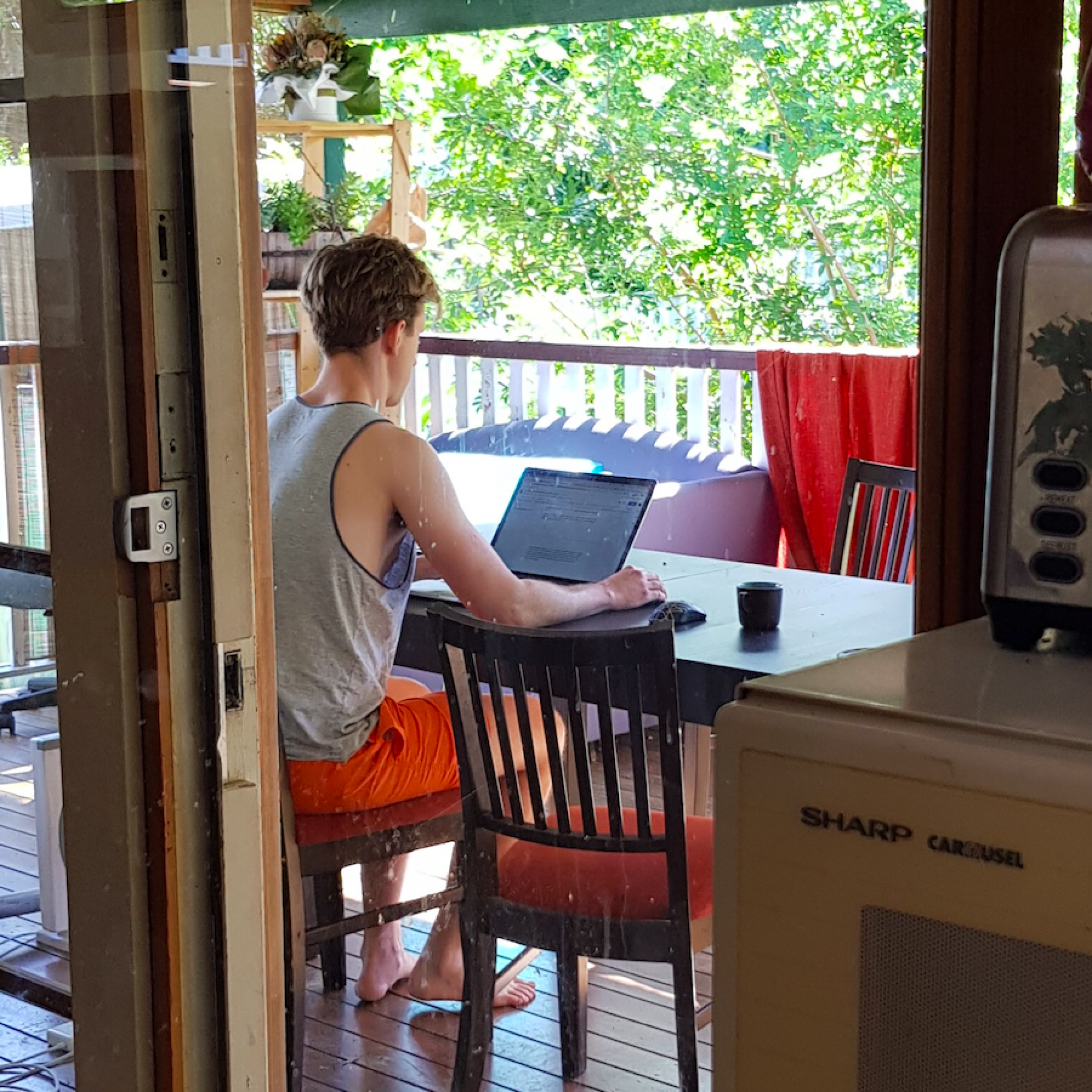OCD From The Outside
What I've learned being in a relationship with someone who has Obsessive Compulsive Disorder.
Written by Jordan Hill

01 Jordan has experienced depression and anxiety, and has also spent time as a psychology student.
02 Despite her experience, she was unaware of the realities of OCD until she met her partner, Martin.
03 Their relationship has allowed her to gain a deeper understanding of the disorder, and why people with OCD care so deeply about protecting those around them.
In 2018, the Australian Bureau of Statistics recorded that over the past 12 months, 3.2 million Australians experienced an anxiety related condition, and 2.4 million identified having depression or feelings of depression.
Reading these statistics reminds me of how normal my low-level depression and anxiety seems. I often forget to share my conditions with people as they feel more like characteristics of mine than they do disorders, and that sentiment can be easy to believe when there’s another 5.6 million people presenting similar symptoms.
As a drop-out psych student, I have always been aware of many mental health conditions. I’ve learned general names, symptoms and treatments for conditions like bipolar disorder, schizophrenia, post traumatic stress disorder, and of course, obsessive compulsive disorder. All first year drop-out psych students know OCD is characterized by maintaining cleanliness, neat standards and order.

Dr. Phillipson Talks Science, Symptoms & Treatment of OCD
Like most mental disorders, OCD is often depicted as an extreme version of the most common and obvious traits. But what I find particularly unique about it is that it’s often spoken about as a desired characteristic: “I need to straighten that cabinet! You know I have OCD about this.” “I’m so glad that I’ve met someone who is OCD like me. It makes working together much easier since we’re both anal!”
Fifteen years after I first heard about OCD — after my first university drop out, after my dual degree graduation, after seeing this guy with OCD perform poetry, after accumulating all my third-person information about mental health disorders — I met Martin.
You might have seen Martin on an episode of “You Can’t Ask That”, which aired on ABC earlier this year. On the show, he shares that he has OCD, and it didn’t appear until he was 23 years old. Martin tells viewers that he experiences thought spirals which he has no control over, such as questioning if he’s a cannibal, rapist, or pedophile.

“To say that OCD is about a compulsion like cleaning is like saying the flu is about blowing your nose. Obsessive Compulsive Disorder is really about thoughts — intrusive thoughts that we all have, but that the OCD brain can't turn off.”
Spending time with Martin has helped me to understand OCD better than any textbook could. And while I understand that OCD looks different for each person, I want to share with you some of what I have learned so far:
- OCD can manifest in different ways such as checking, contamination, mental contamination, symmetry, order, rumination, intrusive thoughts and hoarding.
- People with OCD are not always clean-freaks. A lot of them are actually quite opposite to the stereotypical Instagram influencer who says they are “sooooo OCD!”, though it entirely depends on the type of OCD someone has.
- OCD can be present from birth, or it can appear at nearly any age — this can make it extremely difficult to diagnose.
- It’s usually hard to tell when someone has OCD as they learn to hide it well.
- OCD can be debilitating, disturbing, incessant, and really tough to deal with.
- OCD has great treatment opportunities, and the results of these treatments vary.
- People with OCD care more than you do.

I want to guide you through that last point, because it’s something Martin once said to me, and in my typical fashion, I stubbornly thought, “I’m one of the most empathetic people in existence. You can’t tell me that you care more than me!” But the truth is, Martin never had to say this to me because he’s shown it.
To give you some context, Martin has obsessions and compulsions that change how we interact with each other every day. I watch as turning on the TV becomes a five minute ordeal, and needs to be repeated until it feels just right. When we take photos together, we must take a sufficient amount of extras so that Martin doesn’t remember in which photo he was having an intrusive thought. If we go out to dinner, he can spend so much time on which shirt to wear that it often feels like I’m dealing with a prima donna before their debut catwalk.
I know Martin cares because he never tells me about the content of his obsessions. When we’re together, he makes sure his intrusive thoughts only show as a mild change in facial expression, or a quiet “no.” Yet when he goes off into a separate room, I can see him let go of this control.

Instead of giving a quiet no, I watch as he quickly covers his face with his hands and lets out a cry. His hands will cross over and move down as he hugs his shoulders tightly. His head will shake back and forth as he tries to rid himself of whatever intrusive thought he is having. The pain on his face is obvious.
Since then, we’ve talked about his intrusive thoughts many times, and I’m starting to understand the concept well. You know how us normies can have weird, uncomfortable thoughts such as, “This chicken is good tonight. I wonder if humans would taste similar?” We might look around nervously to check that no one else heard our thoughts, but then we quickly dismiss the idea.
We all know that we don’t really want to eat human flesh. Or similarly, if we see a young kid who is gorgeous and has eyes which will break hearts in the future, we do not continue along the same train of thought that we might have with an adult of similar age. After all, they’re a kid, we’re an adult, and it’s not even a consideration to sexualise a young person in that way.
Intrusive thoughts do not work in the same manner. The moral compass inside us which guides us between right and wrong is intensified for people with OCD. Intrusive thoughts can feel like a life or death situation, so there’s no such thing as innate gut instinct.
“I was about to perform at the Sydney Opera House but all I could think about was the excruciating possibility that I might like the taste of human flesh.
My mind scanned every memory for stories I had heard about cannibals as I tried to retrospectively analyse my reactions to them. Was this something I had always secretly wanted? Outrageous.
But wasn't it possible?
Why is this thought even occurring to me? Every time I bite into a delicious piece of meat I can't stop graphically imagining it being human. It's a thought so horrible I want to spit the meat out right away — but for some reason it won't go away when I tell it to.”
I know Martin cares more than me because I work hard to act like a good human being, but I don’t have to work hard to think like one.
My brain can dismiss intrusive thoughts easily, and I know that I’m not a cannibal, rapist or paedophile. But Martin, and other people with OCD, feel as though they must put effort into every minute of the day to ensure they are making the right choices, decisions, and actions that won’t hurt other people.
They’re avoiding playgrounds because they don’t want to be seen as a potential child sex offender. They are turning their cars around and are now late for work because that speed bump felt exactly like running over a human body and they have to check that it wasn’t. They are worried about their pets because they might have contaminated them with hookworms after being outside and then petting them. They are asking for consent before, during, and after having sex because the last thing they want to do is cross another person’s boundaries.
More than anything, they are doing their best to ensure that their experience with OCD doesn't hurt you.
This week, Martin was having a particularly long reaction to an intrusive thought, and I reached out to stroke his shoulder. For the first time I can remember, he gently pushed my hand away and took the time he needed to deal with his thoughts.
Later, we had a conversation about this because I wanted to understand what had happened. Martin told me that in that particular moment, he didn’t want me to touch him because he was having a sexually intrusive thought and he didn’t want me to be involved in it. It’s one of many scenarios where Martin puts his concern for me above any desire he might have for himself. He gently justifies his actions by saying, “I do it because I care.”
The Australian Bureau of Statistics recorded that somewhere between 500,000–700,000 Australians have OCD. Chances are, one of them is someone you know.
<>
ABOUT THE AUTHOR
Jordan is an animal lover and social justice partisan, from Logan, Australia. Often found with her head in a book, she is constantly working to become a better ally and advocate for many causes. Jordan believes vulnerability is a strength and furthermore, that sharing knowledge through stories is a powerful tool.
Martin is a writer and filmmaker who often shares his experience with OCD on social media, you can find him @martindefinite
Support our work
We’re on a mission to change how the world perceives mental health.



















